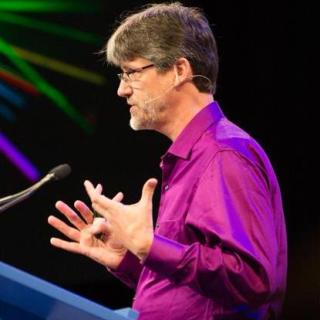Astronomy Is for Everyone

The Effects of Gravity is a live stage performance that tells the story of our cosmic origins—the formation of the universe, galaxies, stars, planets, our solar system, and our planet—from both scientific and poetic perspectives. I cowrote and perform the show with David Gonzalez (poetry, left) and Álvaro Domene (music, not pictured). The performance is richly illustrated with animated computer graphics and astronomical images brought to life by original poetry that embraces the vastness and beauty of the cosmos and our efforts to understand it and blazingly virtuosic live electric guitar.
Since the dawn of time, artists and scientists have looked into the heavens for a sense of understanding and awe. The Effects of Gravity lies directly at that intersection, blurring the line between scientific inquiry and exploration, and the breathtaking awe of the universe that spurs creativity and the numinous. Our audiences loved it, and so will yours."
Chris Silva, Executive Director, The Bardavon 1869 Opera House


On April 8, 2024, people along a path from Mexico to Newfoundland experienced a total solar eclipse. The Adirondack Park witnessed a three-minute totality with clear conditions. I spoke to a capacity crowd as a guest expert at the Adirondack Interpretative Center on the State University of New York Environmental and Forestry campus and led a viewing in Newcomb, New York.
Media and Public Engagement
All audiences—from elementary school students, to undergraduates, to the general public—benefit from understanding the process of science and how we learn about the universe. Conveying this process in terms anyone can understand is at the heart of my talks and writing for the general public.
"At the Cosmic Origins Café, I serve engaging and challenging ideas about our cosmic origins using all-natural, math-free ingredients. I invite readers to ask the question: How do we know what we know about the universe?"
"As an astronomer studying how planets form around distant stars, I felt excited watching the broadcast of that Bennu sample descending to the Utah desert—and a little envious. Those of us who study distant young solar systems can’t send robotic spacecraft to get a closer look at them, let alone grab a sample for laboratory analysis. Instead, we rely on remote observations."
Connect with Luke Keller
Interested in planning a classroom visit or public talk? Reach out by email.



